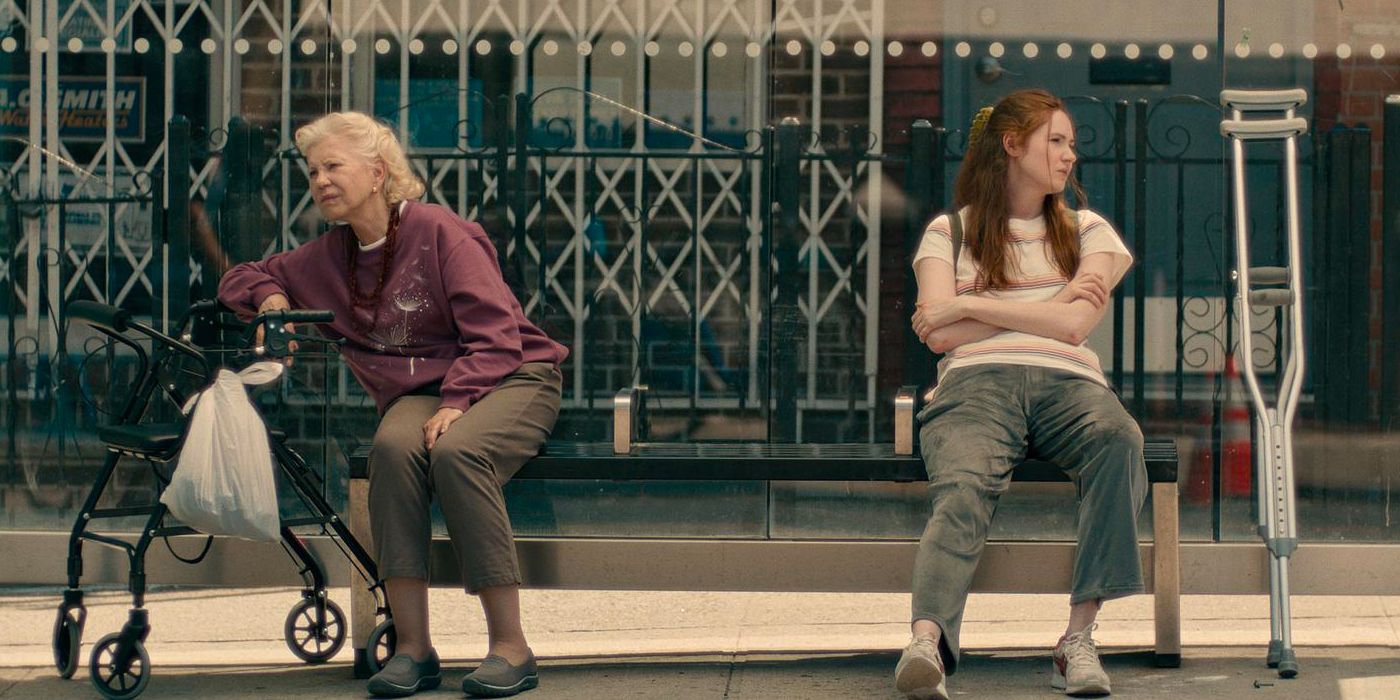A few weeks ago, I was quick to rebuff a tweet about millennial literature and the inherent nihilism that is built into our creative works, but maybe I was wrong. Maybe nihilism is just intrinsically part of who we are now. At some point, dread burrowed through our flesh, leached its way into our bones, and poisoned our bloodstream, and now sorrow is our burden to carry. Adults are sad, and Late Bloomers taps into that emotion in raw, real, and terrifying ways.
There is nothing new about coming-of-age films, or even films entitled some variation of “Late Bloomer,” but Anna Greenfield’s script, brought to life by director Lisa Steen, showcases that not all of us bloom, not all of us flourish, and that is simply okay. Late Bloomers recognizes that it is never just one thing: it’s never just sick parents, or exes getting married, or life-altering accidents, or money problems, or friend troubles—it’s everything, all at once, and it never stops. And no one really prepares you for any of it.
In its broad strokes, Late Bloomers is not entirely a coming-of-age story: it’s a brutally honest story about facing the unavoidable act of aging. At 28, Louise (Karen Gillan) is floundering and devastatingly depressed. She’s jobless, single, and very nearly friendless because her misery makes her a burden to be around. After a night of drunken stupidity, Louise wakes up in the hospital with a broken hip, which is something you expect for an 82-year-old, not a woman in her late twenties. Having Louise break her hip, rather than an arm or a leg, is a truly genius narrative device because it forces her to face her mortality. In older patients, a broken hip is often a death sentence, but for Louise, it is a minor—albeit painful—inconvenience that she can, in theory, overcome because of her youth.
Louise’s situation is put into perspective when she crosses paths with Antonina (Margaret Sophie Stein) in the hospital, and later in physical therapy. Antonina has every reason to be angry at the world, and she is. Antonina is a Polish immigrant who has been dealt a bad lot in life, one marred by loss and, in recent years, a distinct lack of control in her own life. On top of her living scenario and the plights of aging, Antonina doesn’t speak English, which poses its own challenges. Against the odds, Louise and Antonina forge an unlikely and mutually beneficial friendship that helps them both come to terms with the brutal reality of aging.
Even with a major—and pivotal role—in the MCU, Gillan has never lost sight of the roles that allow her to flourish and leave an impact on audiences. Late Bloomers is one of those films. She gleefully revels in the awkward unsteadiness of Louise’s late 20s, while slowly revealing why she leans into the aloofness. It’s a mask: a way to arm herself against her reality. While Steen smartly utilizes flashbacks, which piece together what happened with Louise’s mother, Gillan telegraphs that pain and grief without needing to use flashbacks as a crutch.
For all that Late Bloomers delivers with its scrappy, self-centered lead and her foil in Antonina, there are a few areas of weakness that set it back, particularly with Louise’s living situation. Before being hired as a caretaker for Antonina, Louise has no real job, beyond the vague allusions that maybe she’s a musician. But the script does tell us that she lucked out when she found Brick’s (Jermaine Fowler) listing on Craigslist. Her independently wealthy, charismatic, and handsome roomie serves as an anchor for Louise—he’s always there to listen to her, whether or not she’s saying anything important. But therein lies the problem with Brick’s character: he’s a Black man who sits at home all day, smoking weed, playing video games, and playing therapist for the messy white girl he lives with. It leans into a rather pervasive trope, which is typically seen in Black female characters, which sets Late Bloomers back a few steps. Still, Fowler is absolute dynamite on screen, and his chemistry with Gillan helps to carry the direction their friendship goes.
On paper, Late Bloomers may not be a revolutionary tale, but its execution makes it a clear standout within this specific sub-genre of nihilistic millennial dread. It is keenly aware of its audience and knows exactly how to prod at the fears and insecurities that they similarly keep buried beneath brash words and prickly personalities, just like Louise. Gillan makes the role her own and elevates it beyond what it could have been with any other lead. Late Bloomers is as beautiful as it is brutal, and it drives home the potential in the fragility of life. There is also something equally poignant in the fact that Late Bloomers is intimately linked with the plights of women aging explored through Louise, her mother, Antonina, and the women in physical therapy. While men go through similar plights and illnesses while aging, women do experience all of it far more harshly—especially once they’re “past their prime.”
Anecdotally, Late Bloomers was an utterly devastating film to grapple with as the final countdown on my own late 20s was upon me. Paired with the fact that Louise, like myself, is an only child born to parents who had her later in life, it was impossible to separate myself from what I was watching. From the third act, through to an hour and a half after the credits rolled, I was still ugly crying, which is a testament to how brutal and compelling the film is. There’s no happy hook, no happily ever after. There just is, whatever comes next. Good or bad, you have to face it. You can’t hide from the future, no matter how fast you try to hobble away from it.
Rating: B+
Late Bloomers had its world premiere at SXSW this week. Check out one of our past interviews with Gillan below:


